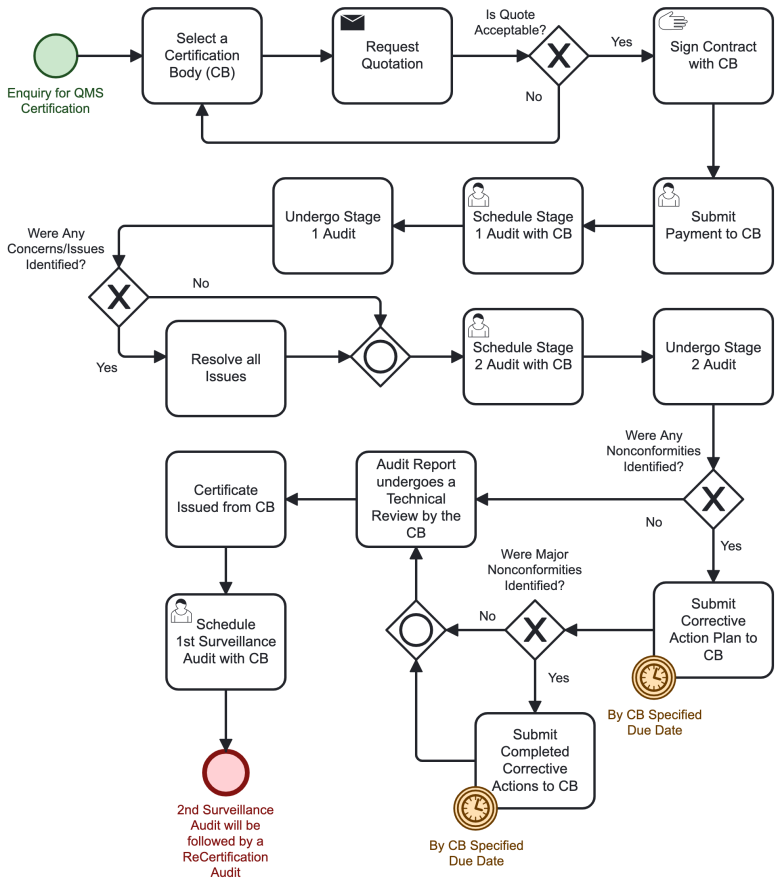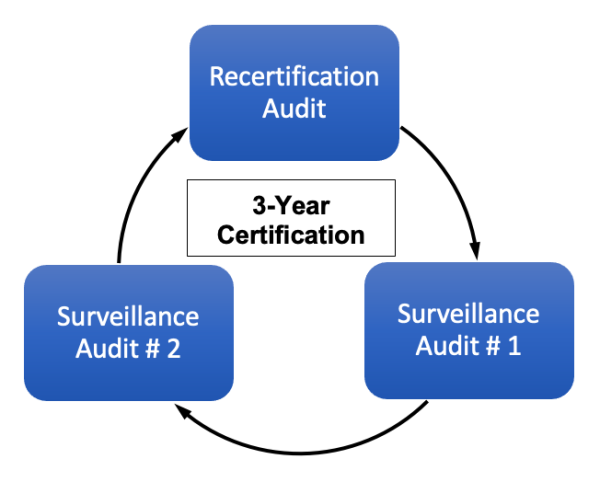This is an old revision of the document!
What is ISO 9001 Certification?
Some customers require their suppliers to be ISO 9001 certified because want assurance that their suppliers have a basic, formal QMS (Quality Management System).
When researching ISO 9001 certification, many people are surprised to learn that ISO (the International Organization for Standardization) does not provide ISO 9001 certification! In fact, ISO 9001 was NOT written with certification in mind. Instead, the certifications are provided by independent “Certification Bodies” (CBs). And there are two types of CBs, accredited & non-accredited.
- Accredited CBs operate in accordance with the requirements on an accreditation body (e.g., ANAB), primarily specified in ISO 17021-1. This accreditation provides credibility and confidence that their Certification will be recognized by those customer(s) invoking the requirement to be certified (often driven by governments or multi-national corporations and “flowed” down through their suppliers). Accredited CBs are more expensive because they must pay to maintain this accreditation. And, if selecting an accredited CB, you should ensure that CB holds accreditation from an internationally recognized body. For example, ANAB (ANSI National Accreditation Board) is recognized by the International Accredited Forum (IAF).
- Non-Accredited CBs operate with complete independence and no oversight. While non-accredited CBs are typically far less expensive than accredited CBs, their credibility is limited to their reputation. The absence of oversight creates a lack of confidence… resulting in a significant risk that certificates issued by those CBs will not be accepted/recognized by customers invoking the requirement for certification.
The ISO 9001 Certification Process
Initial Certification Audit
After selecting a few ISO 9001 Certification Bodies (CBs), the first step in the certification process is to obtain a quotation.
Recertification Audits
After completing the “Initial Certification Audit” followed by the 2 (two) Surveillance Audits, the contract with the CB must be renewed. The following 3-year certification periods begin with a “recertification” audit followed by two (2) “Surveillance” audits.
Transferring to a different CB
At any point after your initial certification, you can “transfer” to a different CB… for any reason.
If you “transfer” during your “Surveillance” period, the new CB will need to perform a “Special Audit” to verify that all of the previous nonconformities (identified by your current CB) have been closed.
If you “transfer” during your “Surveillance” period, the new CB will need to perform a “Stage 1” audit (essentially re-creating the “Initial Certification” process).
The new CB is required to follow the process defined in “IAF Mandatory Document for the Transfer of Accredited Certification of Management Systems”.
 If you’re ready for a path forward now…
If you’re ready for a path forward now…
Just click here to schedule your FREE Certification Strategy Meeting (via Zoom) with me. I’ll answer any questions you might have. No sales pitch. Just information.
Or, for my cell phone & e-mail address, visit the contact us page.
100% of our clients achieve certification on their first attempt.
This means that no CB has ever required a “follow-up” or “special” audit for any of our clients prior to being issued their certification.
We provide you with “peace of mind” that we'll take care of QMS certification!



